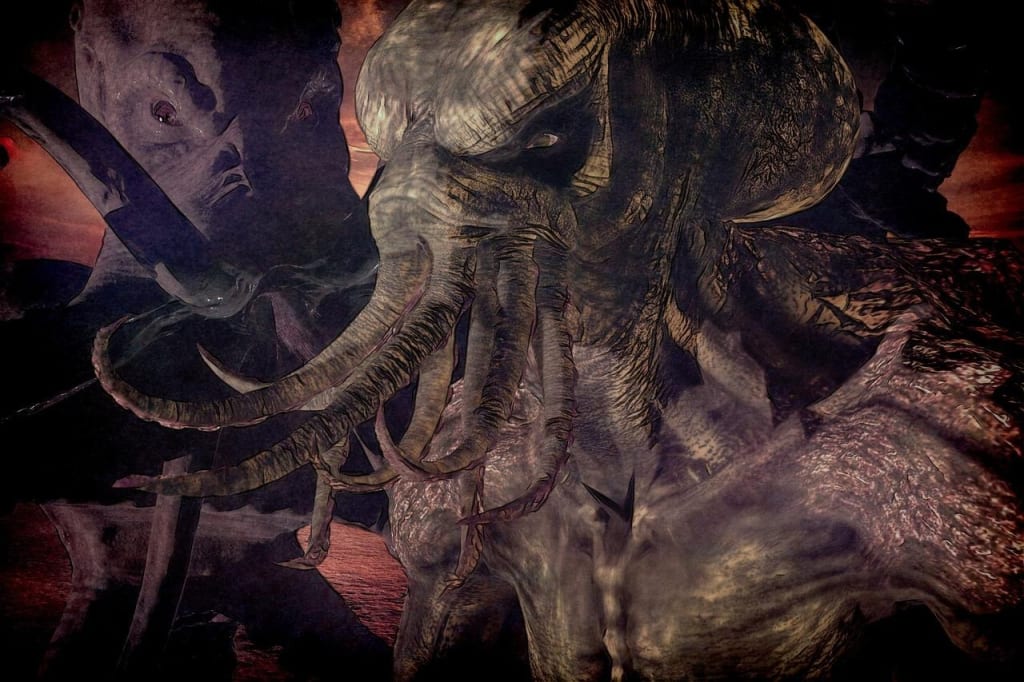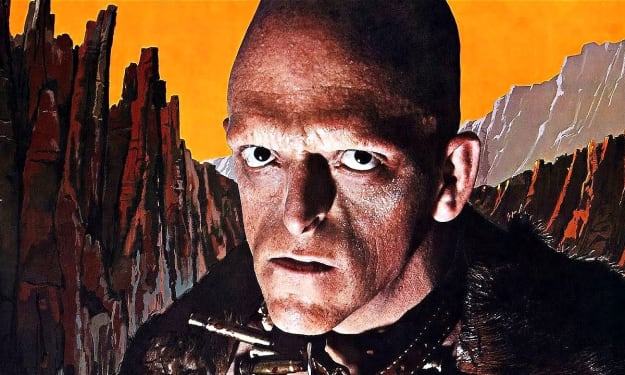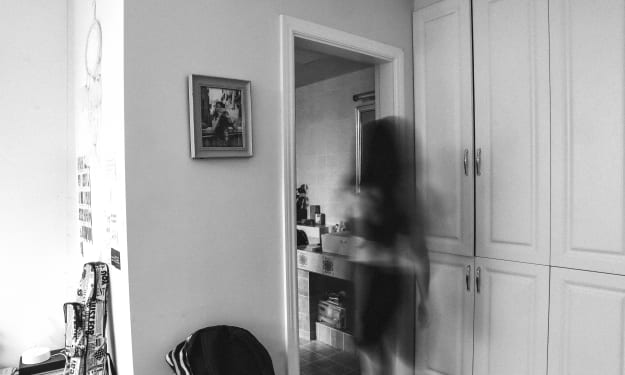
“The sciences, each straining in its own direction, have hitherto harmed us little; but some day the piecing together of dissociated knowledge will open up such terrifying vistas of reality, and of our frightful position therein, that we shall either go mad from the revelation or flee from the deadly light into the peace and safety of a new dark age.” H.P. Lovecraft, "The Call of Cthulhu (1928)
I reread the "Call of Cthulhu" last night, as yesterday was the 133rd birthday of author Howard Phillips Lovecraft, whose work transcends mere horror or gothic fiction, taking supernatural fiction into a realm quite beyond the provenance of mere "entertainment." It's been postulated by those in occult circles that HPL was really just the mouthpiece, or more popularly, the "channel" for Cthonic (Cthulhu?) forces that were using him and the vehicle of his fiction to convey vast, hideous, and arcane truths. Cosmic terrors and wonders, so to speak.
"Call," is a series of narratives (Lovecraft is often derided for his archaic style; in other words, he often "tells" instead of "shows," which is supposed to be some kind of literary sin. Here's a hint: if it WORKS, it WORKS. Here it works.) that proceed logically one from another, from the weird death of Professor Angell to his nephew discovering his "notes toward a mental breakdown" perhaps, but not the late professor's own. The mental breakdown here is suffered by an artist and young eccentric named Wilcox, a Clark Ashton Smith type given to wild paintings and sculptures. Wilcox it seems, has been having disturbing dreams of a weird, seemingly ancient extraterrestrial city, whose "dimensions are all wrong," dripping with slime and redolent of funk and carved with weird, inscrutable hieroglyphics. Also, below, he can hear the rumble of a cryptic, gibberish intonation he renders, "Cthulhu Fthagn."
Wilcox is not the only psychic sensitive to have these disturbing nocturnal visions, but he begins to get up in the night and sculpt a hideous clay monster with a weird Alien head with tentacles, and bat wings. He falls into a feverish sickness. The narrator proceeds to an archaeological convention, wherein all the experts on Semitic languages, ancient religions, and demonology are gathered. An Inspector Legrasse is there too, with a curious stone monument taken from a "Voodoo ceremony" in the Louisiana swamps, one that was raided by the police. It is here that the timeless tale does show its age, as there are some politically incorrect (by modern standards) terms thrown about, and an inference of racism. Of course, this story IS ninety-seven years old.
The Inspector and the esteemed experts all convey to the narrator that he may be on the trail of a hidden cult, one who worship vast extraterrestrial 'gods' that actually created man (shades of later ancient astronaut theorizing); according to one of the captured voodoo cultists. These cultists are responsible for the slaughter of other swamp dwellers and squatters. One of them tells police he has met with an ancient Chinese man who told him about the beginnings of the hidden sect, who worship the Old Ones, and whose deity Cthulhu sleeps in sunken R'lyeh, dreaming, waiting, until "the stars are in alignment."
The final narrative is discovered by "accident," while the narrator is cleaning up the storehouse of a university museum or something. It's a chance encounter with a story written on a piece of newsprint, but it leads him to Europe, to find the widow of a sailor and the shocking, mind-cracking narrative he relates.
"The Call of Cthulhu" is less of a story than a dark, troubling, unsettling and symbolic cosmic journey, speculation, or perhaps even exaltation of the swirling, chaotic forces that wait, perched, like Great Cthulhu, on his ancient, dripping, Cyclopean pedestal, his "throne of power" as it were, waiting, waiting; ever patient, for the time when he might emerge, from the deepest fathoms of the ocean floor, borne from the fathomless, submerged, primal nightmare of man. (And one could argue that Cthulhu himself represents something in HPL, something borne from a terror or disgust at the "angled spaces" that represent the cold, loveless, and undeniably DEAD womb of HPL's mother, Cthulhu representing the horror of female sexuality, birth, putrescence, corruption, etc.)
Cthulhu emerges first in sleep, then in the "real world." In our world, this story has inspired the classic tabletop role-playing game Call of Cthulhu, as well as horror stories, video games, movies, comic books, graphic novels, and even the instrumental "Kall of Kutulu" by heavy metal supergroup Metallica. In our present world, awash in technological, environmental, social, and spiritual disaster and decay, Cthulhu does, indeed, seem to be calling.
And how will we answer?
Call of Cthulhu Audiobook
About the Creator
Tom Baker
Author of Haunted Indianapolis, Indiana Ghost Folklore, Midwest Maniacs, Midwest UFOs and Beyond, Scary Urban Legends, 50 Famous Fables and Folk Tales, and Notorious Crimes of the Upper Midwest.: http://tombakerbooks.weebly.com
Reader insights
Outstanding
Excellent work. Looking forward to reading more!
Top insights
Compelling and original writing
Creative use of language & vocab
Easy to read and follow
Well-structured & engaging content
Excellent storytelling
Original narrative & well developed characters
Expert insights and opinions
Arguments were carefully researched and presented
Eye opening
Niche topic & fresh perspectives
Masterful proofreading
Zero grammar & spelling mistakes
On-point and relevant
Writing reflected the title & theme







Comments (4)
Thanks for your review! Really interesting.
I must admit, I was unaware of this book. Thank you And congratulations
Brilliant writer I came to late in life... Thank you for this!
Methinks you may find this difficult to fathom, Tom, but I don't believe I have ever read any of H. P. Lovecraft's work, in spite of my enjoyment of Hitchcock & Poe & having heard of him since my youth. Thank you for writing this & including the audiobook link. Methinks I may have some more reading to do.